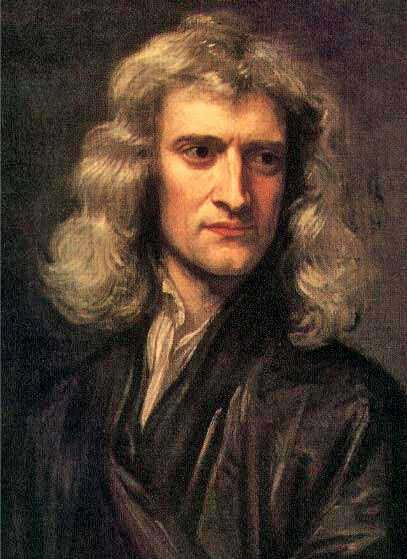Isaac Newton is a man of encyclopedic knowledge: philosopher, mathematician, physicist, alchemist and astronomer.
With his theory of universal gravitation and the three fundamental laws of dynamics, he is considered the founder of classical mechanics.
In addition to inventing the reflecting telescope, he developed a theory of color based on the decomposition of white light by a prism.
In mathematics, he made a major contribution, notably to the study of series and the creation (with Leibniz) of differential and integral calculus. He is also known for his generalization of the binomial theory.

-
1642: Isaac Newton is born on January 4.
-
1665: He obtained his bachelor's degree and discovered the binomial theorem.
-
1669: Becomes professor at Cambridge.
-
1672: He presents his theory of color to London's Royal Society.
-
1675: Discovered differential calculus.
-
1684: He formulated the law of universal gravitation and planetary motion.
-
1687: Publishes Mathematical Principles of Natural Philosophy.
-
1703: Becomes President of the Royal Society.
-
1704: He published his theory of optics and introduced the concept of light-wave frequency.
-
1727: On March 31, Newton died.